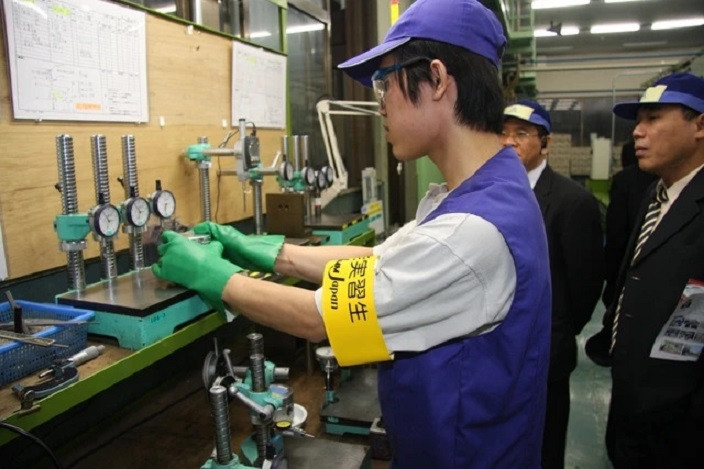For many laborers in Vietnam, the April 30 - May 1 holiday is not a time for rest, but an opportunity to earn extra income - sometimes three to four times their usual daily wage.
A gesture of appreciation and connection

Le Thi Han, a staff member at a hospital in Hanoi, shared that her hospital awarded employees a holiday bonus of VND 2 million (about USD 78) this year. In previous years, bonuses ranged from VND 3-5 million (USD 117-196).
Le Van Huan, who works for a media company in Hanoi, said his company gave employees bonuses ranging from VND 5-10 million (USD 196-392) during the same holiday last year. However, this year, the bonus was reduced to VND 3-5 million (USD 117-196), roughly half of what it used to be.
"Even though the bonus is lower than last year, given the current tough business environment, it’s still a great source of encouragement," Huan said.
In reality, holiday bonuses from organizations and businesses during events such as April 30 - May 1 or September 2 are generally modest and mostly serve as a morale booster for workers.
Nonetheless, experts suggest these gestures help maintain employee engagement and demonstrate employer care - especially in challenging times. Holiday benefits thus represent more than just income; they reflect a stable, trustworthy relationship between workers and employers.
According to Vietnam’s 2019 Labor Code, bonuses can be in cash, assets, or other forms, based on the employer’s business results and employee performance. Bonus policies are decided and publicly announced by employers after consulting the local labor union, if one exists.
Holiday shifts bring substantial earnings
For many workers, the holiday becomes a lucrative opportunity to earn significantly more.
Tran Van Quynh, a petrochemical engineer in Thanh Hoa, said he earned nearly VND 3 million (around USD 117) per day by working during the holiday - two to three times his usual daily wage.
“With five days off this year, working just three days gave me the same income as a full regular work week. It's a bit exhausting, but it helps ease family expenses during the holiday,” Quynh explained.
Le Van Giap, who works at a thermal power plant in Hai Phong, shared that while his company gave a bonus of only VND 2 million (USD 78), it also encouraged employees to work over the holiday to meet production demands. Giap registered to work on the two main public holidays.
“I didn’t get the full five days off, but with income three to four times higher than usual, I don’t feel too burdened,” he said.
Under the 2019 Labor Code, employees working on public holidays are entitled to at least 300% of their regular wage, excluding the base pay for the holiday itself. Those working night shifts receive an additional 30% of the wage calculated by either unit price or actual salary.
Vu Diep